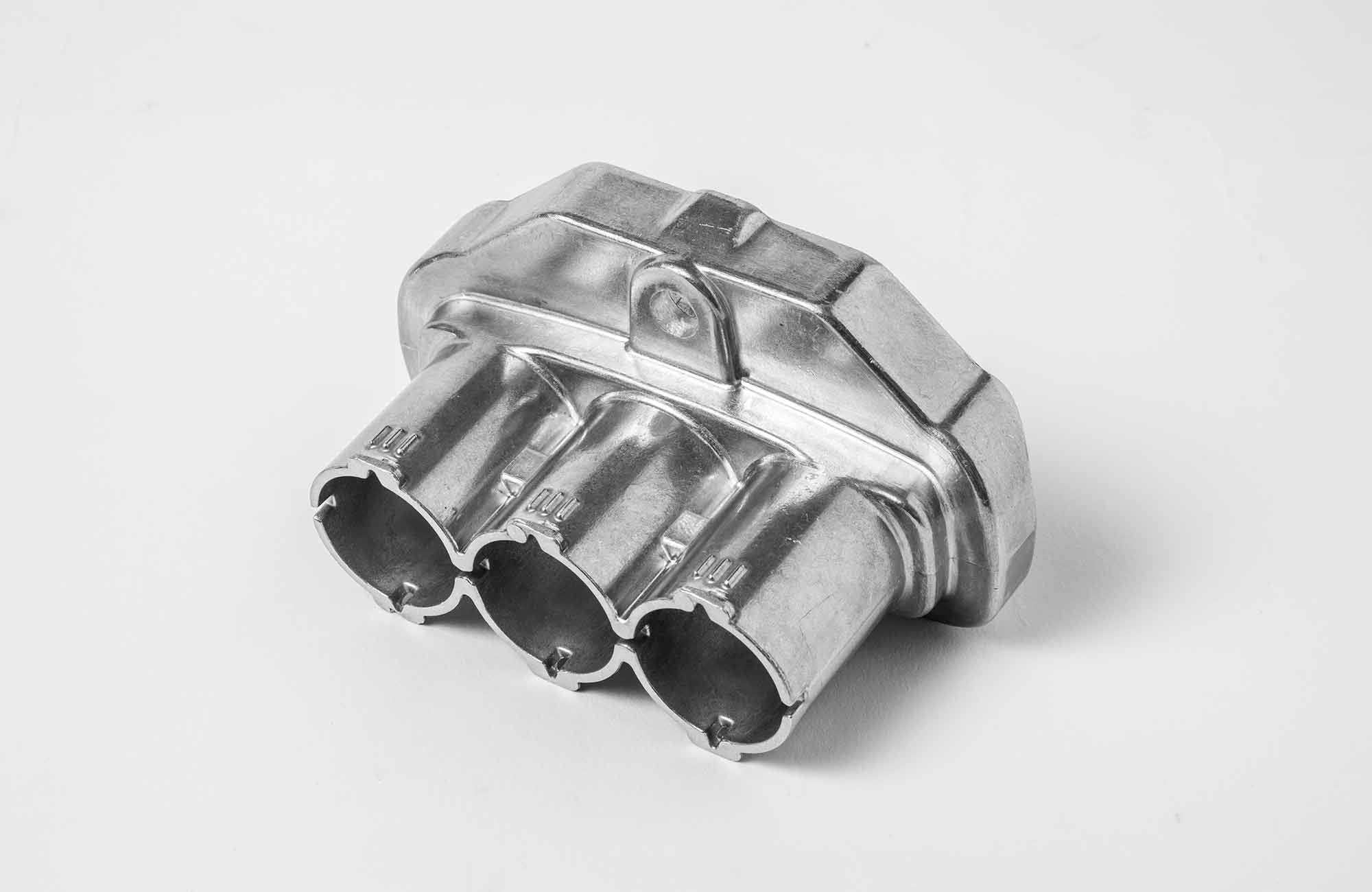The Ultimate Guide To Alcast Company
The Ultimate Guide To Alcast Company
Blog Article
The Best Guide To Alcast Company
Table of ContentsGet This Report on Alcast CompanyThe 2-Minute Rule for Alcast CompanyGetting My Alcast Company To WorkGetting My Alcast Company To WorkLittle Known Questions About Alcast Company.The Main Principles Of Alcast Company
The refined distinction hinges on the chemical content. Chemical Comparison of Cast Light weight aluminum Alloys Silicon advertises castability by minimizing the alloy's melting temperature level and boosting fluidness during casting. It plays an essential duty in enabling complex molds to be filled precisely. Furthermore, silicon adds to the alloy's toughness and put on resistance, making it valuable in applications where sturdiness is critical, such as automotive components and engine components.It additionally improves the machinability of the alloy, making it easier to refine right into completed items. In this means, iron adds to the total workability of light weight aluminum alloys.
Manganese adds to the strength of aluminum alloys and enhances workability (Casting Foundry). It is frequently made use of in functioned light weight aluminum products like sheets, extrusions, and accounts. The presence of manganese help in the alloy's formability and resistance to breaking during manufacture processes. Magnesium is a light-weight aspect that offers toughness and effect resistance to light weight aluminum alloys.
Excitement About Alcast Company
It permits the production of light-weight components with excellent mechanical residential properties. Zinc enhances the castability of aluminum alloys and helps manage the solidification procedure throughout spreading. It improves the alloy's strength and firmness. It is commonly located in applications where intricate shapes and fine details are needed, such as attractive spreadings and certain automobile parts.

The primary thermal conductivity, tensile toughness, return toughness, and elongation differ. Amongst the above alloys, A356 has the highest possible thermal conductivity, and A380 and ADC12 have the lowest.
Examine This Report about Alcast Company

In precision spreading, 6063 is well-suited for applications where intricate geometries and top notch surface area coatings are critical. Examples include telecommunication units, where the alloy's remarkable formability enables smooth and cosmetically pleasing layouts while keeping architectural integrity. In a similar way, in the Illumination Solutions industry, precision-cast 6063 parts produce classy and effective illumination components that need intricate shapes and great thermal efficiency.
It results in a finer surface finish and much better rust resistance in A360. Moreover, the A360 exhibits exceptional elongation, making it suitable for facility and thin-walled parts. In accuracy spreading applications, A360 is fit for sectors such as Customer Electronic Devices, Telecommunication, and Power Devices. Its boosted fluidness permits for complex, high-precision elements like mobile phone cases and communication device housings.
The Facts About Alcast Company Revealed
Its unique residential or commercial properties make A360 a beneficial choice for accuracy spreading in these industries, improving item sturdiness and quality. Aluminum alloy 380, or A380, is an extensively used casting alloy with numerous distinctive attributes. It offers exceptional castability, making it an optimal learn the facts here now selection for precision spreading. A380 shows good fluidity when molten, ensuring detailed and detailed molds are precisely duplicated.
In precision spreading, light weight aluminum 413 radiates in the Customer Electronic Devices and Power Equipment industries. This alloy's premium deterioration resistance makes it an exceptional choice for exterior applications, making sure lasting, durable items in the discussed sectors.
The Best Guide To Alcast Company
When you have actually made a decision that the light weight aluminum die casting procedure is suitable for your job, an important following step is selecting the most proper alloy. The light weight aluminum alloy you choose will significantly influence both the casting process and the homes of the end product. As a result of this, you have to make your decision very carefully and take an enlightened approach.
Establishing the most suitable aluminum alloy for your application will imply evaluating a large selection of characteristics. These relative alloy features follow the North American Pass Away Casting Organization's standards, and we've divided them into 2 categories. The very first category addresses alloy qualities that affect the manufacturing procedure. The 2nd covers features influencing the properties of the end product.
The Alcast Company Diaries
The alloy you pick for die casting straight impacts several elements of the spreading process, like how very easy the alloy is to collaborate with and if it is prone to casting defects. Warm splitting, likewise referred to as solidification fracturing, is a normal die casting issue for light weight aluminum alloys that can lead to internal or surface-level splits or cracks.
Particular light weight aluminum alloys are much more at risk to hot splitting than others, and your selection must consider this. An additional usual defect discovered in the die spreading of light weight aluminum is die soldering, which is when the actors adheres to the die wall surfaces and makes ejection challenging. It can harm both the actors and the die, so you should try to find alloys with high anti-soldering buildings.
Deterioration resistance, which is currently a notable characteristic of light weight aluminum, can differ considerably from alloy to alloy and is an important characteristic to think about depending upon the ecological problems your item will certainly be revealed to (Aluminum Casting). Wear resistance is another residential property generally looked for in light weight aluminum items and can set apart some alloys
Report this page